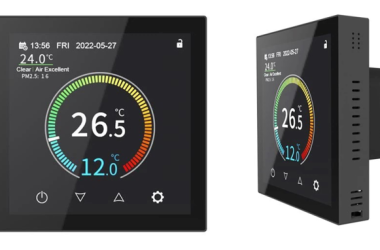The way we power and use our homes is changing rapidly. From electric vehicles to smart heating controls, technology is transforming domestic life — and with it, the demands placed on electrical systems.
For homeowners, the question is no longer just about keeping the lights on. It’s about preparing properties for a future where sustainability, efficiency, and digital connectivity all play a central role.
The Rise of Electric Vehicles
Electric vehicle ownership in the UK is growing year on year, supported by government incentives and a wider choice of models on the market. For EV owners, having a reliable charging solution at home is one of the biggest conveniences.
Installing a dedicated home EV charger ensures safe, efficient charging at a much faster rate than a standard three-pin plug. Chargers can be wall-mounted in a driveway or garage and integrated with smart systems to take advantage of off-peak tariffs.
With the upcoming 2035 ban on new petrol and diesel cars, installing EV charging infrastructure is becoming a smart long-term investment for households.
Solar Power and Home Energy Storage
Solar panels are another way homeowners are embracing the future. Advances in panel efficiency mean more energy can be generated from fewer panels, while battery storage allows households to capture and use electricity when it’s most needed.
This reduces reliance on the grid, cuts bills, and contributes to a more sustainable energy system. In some cases, homeowners can even sell surplus power back to the grid, turning their roofs into mini power stations.
Integrating solar with EV charging is also becoming popular, as it enables drivers to power their vehicles using clean, home-generated energy.
Smart Electrical Systems
The “smart home” is no longer futuristic — it’s here. From heating and lighting controls to security systems and appliances, connectivity is changing the way we interact with our homes.
Smart systems can:
- Adjust heating and lighting automatically for efficiency.
- Provide real-time energy usage data.
- Enhance home security with cameras, sensors, and alarms.
For many households, smart technology improves convenience as well as sustainability, by ensuring that energy is only used where and when it’s needed.
Why Electrical Safety Still Matters
With all these new technologies, it’s easy to forget the basics: every home system needs a solid electrical foundation. Adding EV chargers, solar panels, or smart devices without upgrading or checking existing wiring can be risky.
That’s why safety is key. A qualified electrician should always be involved in installing, inspecting, and maintaining these systems. Not only does this ensure compliance with UK regulations, it also provides peace of mind that the home is ready for whatever the future holds.
For larger projects, it’s worth contacting professionals who can provide end-to-end solutions. Companies offering safe electrical services ensure that installations meet the highest standards and that future technologies integrate seamlessly with existing systems.
Planning Ahead for Home Improvements
Homeowners considering upgrades should take a holistic approach. Rather than adding systems one by one, it’s smart to think about how they work together:
- Will your consumer unit (fuse box) cope with the additional load from an EV charger?
- Can solar panels be positioned to maximise output across the year?
- Do you need smart wiring installed during renovations to future-proof the property?
Asking these questions early saves time and money, ensuring that upgrades are smooth and compatible.
The Benefits of Future-Proofing
Preparing a home for the future is not just about technology for technology’s sake. It delivers tangible benefits:
- Lower energy bills: More efficient systems reduce waste and take advantage of renewable power.
- Increased property value: Homes with EV chargers, solar panels, and smart systems are more attractive to buyers.
- Greater comfort and convenience: Smart controls make daily life easier and more responsive.
- Environmental impact: Renewable energy and efficient systems reduce reliance on fossil fuels.
Conclusion
From electric vehicles to solar power and smart home systems, the way we use electricity at home is evolving quickly. Forward-thinking homeowners are already making changes that will pay off in comfort, savings, and sustainability.
The key is to ensure these upgrades are installed safely and professionally, with an eye on both current needs and future developments. With the right planning and support, homes can be ready for a smarter, greener future — powered by safe, efficient electrical systems.






